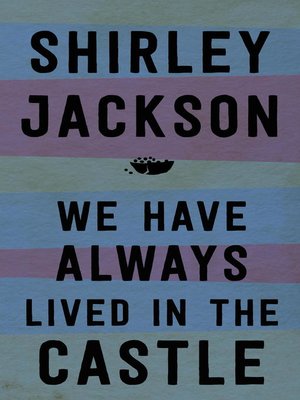

If we are not able to put all the pieces together right away, that’s our problem. I think she considers us to be beneath her notice, she just says exactly what she pleases and when she pleases. If you went and read one of those reviews I warned you against, they might have told you that Mary Katherine is an unreliable narrator.

In this respect, it makes me think of Margaret Atwood. Every single sentence has a place, has a reason for being and means something, as opposed to simply describing what happens. The language is beautiful: not in the sense of being elaborately poetic, but it’s incredibly precise and well-observed. It is a slim volume, perfectly constructed. There are some obvious similarities (the adolescent narrator, the general feeling of unease), but a more fundamental affinity, too. We Have Always Lived in the Castle reminded me of To Kill a Mockingbird and Neil Gaiman’s* books, although it isn’t LIKE them. If you can, don’t even read further, just read the book. Not that this book would fall apart when a twist is spoiled, but if you know too much, you’ll miss some of the beauty of how the story unravels. Blurbs and those neat little summaries in reviews – they are necessary evils, I suppose, but they always ruin the book at least a little. This is the opening paragraph of the book and it’s all you need to know about what is going to happen, about what is happening, about what has happened. I like my sister Constance, and Richard Plantagenet, and Amanita phalloides, the death- cup mushroom. I dislike washing myself, and dogs, and noise. I have often thought that with any luck at all I could have been born a werewolf, because the two middle fingers on both my hands are the same length, but I have had to be content with what I had. I am eighteen years old, and I live with my sister Constance. The last time I felt it was reading Shirley Jackson’s We Have Always Lived in the Castle. But sometimes, the wonder is still there. I think it’s one of the reasons I read so much fantasy and science fiction these days, as these genres provide a short-cut to that feeling of difference.

It gets more and more difficult to feel the same overwhelming, heady excitement about books that I used to. You know the type: precocious, slightly awkward, unseen by boys, always, everywhere reading – hungry for something different, other places, other lives. As long as I can remember, I have been one of the Reading Girls. One of my first memories of myself is me reading on the veranda at my grandparents’ place – I must have been four, possibly five.


 0 kommentar(er)
0 kommentar(er)
